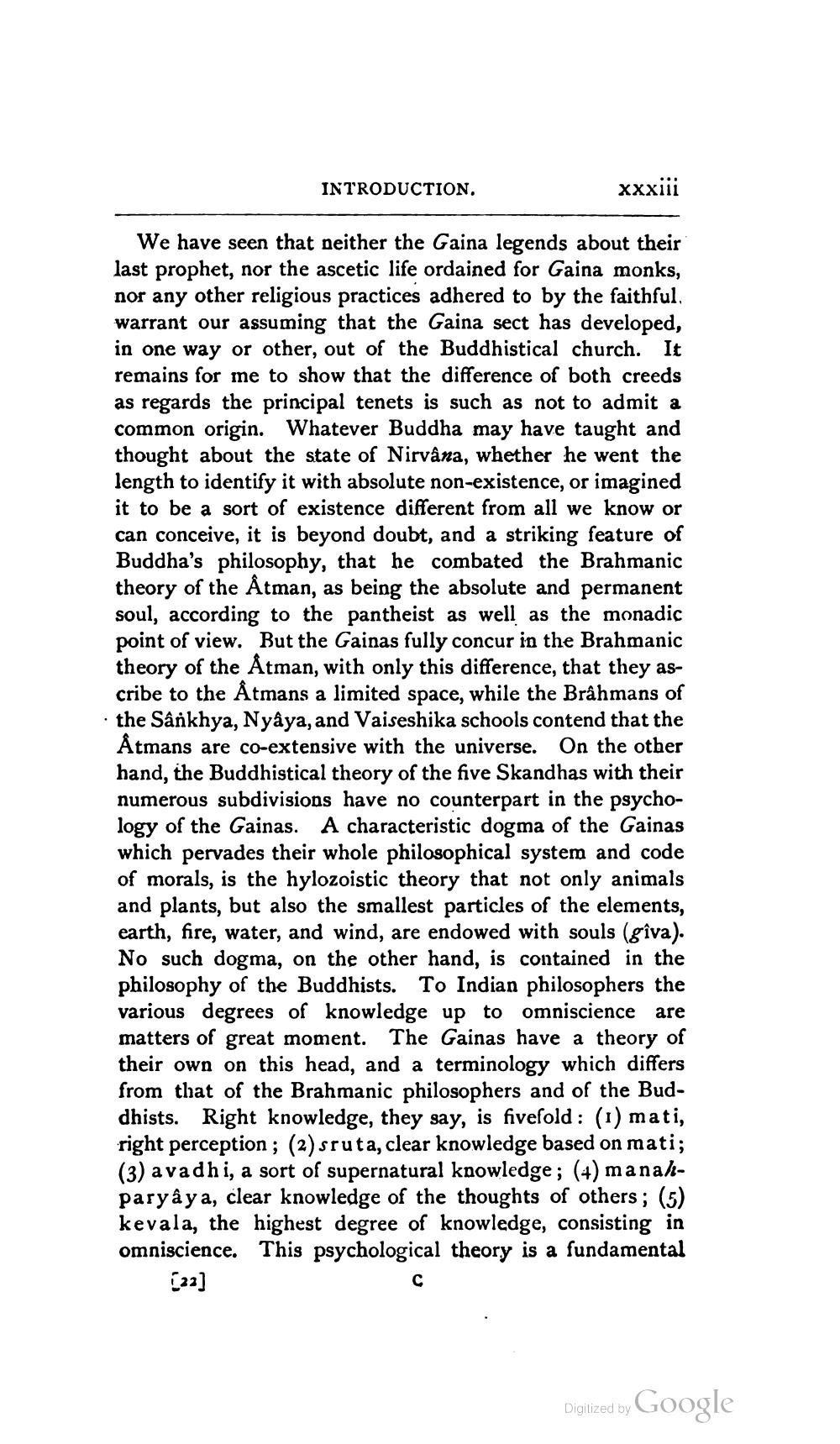________________
INTRODUCTION.
xxxiii
We have seen that neither the Gaina legends about their last prophet, nor the ascetic life ordained for Gaina monks, nor any other religious practices adhered to by the faithful, warrant our assuming that the Gaina sect has developed, in one way or other, out of the Buddhistical church. It remains for me to show that the difference of both creeds as regards the principal tenets is such as not to admit a common origin. Whatever Buddha may have taught and thought about the state of Nirvana, whether he went the length to identify it with absolute non-existence, or imagined it to be a sort of existence different from all we know or can conceive, it is beyond doubt, and a striking feature of Buddha's philosophy, that he combated the Brahmanic theory of the Åtman, as being the absolute and permanent soul, according to the pantheist as well as the monadic point of view. But the Gainas fully concur in the Brahmanic theory of the Atman, with only this difference, that they ascribe to the Åtmans a limited space, while the Brâhmans of the Sânkhya, Nyâya, and Vaiseshika schools contend that the Åtmans are co-extensive with the universe. On the other hand, the Buddhistical theory of the five Skandhas with their numerous subdivisions have no counterpart in the psychology of the Gainas. A characteristic dogma of the Gainas which pervades their whole philosophical system and code of morals, is the hylozoistic theory that not only animals and plants, but also the smallest particles of the elements, earth, fire, water, and wind, are endowed with souls (gîva). No such dogma, on the other hand, is contained in the philosophy of the Buddhists. To Indian philosophers the various degrees of knowledge up to omniscience are matters of great moment. The Gainas have a theory of their own on this head, and a terminology which differs from that of the Brahmanic philosophers and of the Buddhists. Right knowledge, they say, is fivefold: (1) mati, right perception ; (2) sruta, clear knowledge based on mati; (3) avadhi, a sort of supernatural knowledge; (4) manakparyâya, clear knowledge of the thoughts of others; (5) kevala, the highest degree of knowledge, consisting in omniscience. This psychological theory is a fundamental
(22)
Digitized by Google




